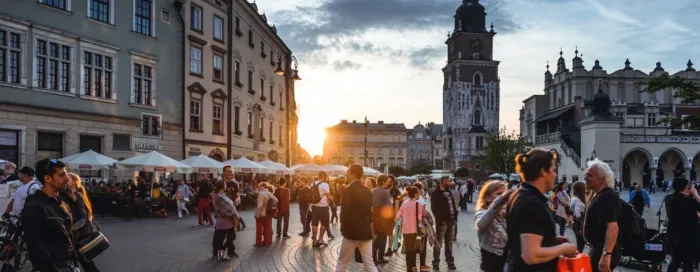The COVID-19 crisis has rightly been described as a symmetrical shock for the whole European Union. All European citizens, healthcare workers, employees in the public sector, civil society organisations and volunteers across the EU have made unprecedented sacrifices to avoid the collapse of our healthcare systems.
Even if the crisis is EU-wide, the pandemic has nevertheless had a much-differentiated territorial impact. In this context, local and regional authorities have distinguished themselves as key actors by exerting their responsibilities in providing health, sanitary and social services. In facing a crisis of unprecedented type and dimension, they have not only took on the burden of enforcing confinement measures, but have also had to adapt national rules to their own local contexts.
The local and regional authorities' actions have also been fundamental to preserve the integrity and vitality of our local communities. The lockdown of our cities, of our towns and of our villages has worsened the situation of those who were already left behind before the crisis. On the other hand, the actual deterioration of their conditions has in fact triggered an unprecedented response of solidarity by local authorities.
From groceries for the elderly to toll-free numbers for psychological assistance, local and regional authorities have made solidarity a reality on the ground long before national authorities started doing it.
As the European Union is starting to shape the post COVID-19 recovery, the European Committee of the Regions is working to ensure that local and regional authorities will be at the heart of this process. Undeniably, this crisis has shown once again how ineffective centralised and uncoordinated national responses can be.
For these reasons, the European Committee of the Regions adopted today by a majority of 76% of votes cast a Declaration on “local and regional authorities as actors of the European response to the COVID-19 crisis". It is addressed to all European Institutions and aims at paying tribute to the incredible work of cities and regions across Europe during the pandemic. It also advocates for an important role for local and regional authorities in a fair and sustainable recovery after the current crisis.
The Declaration obviously insists on the outmost urgency to increase the funding for health under the cohesion policy, in order to boost the quality of our social services.
The PES Group’s input in the Declaration is to insist that the COVID-19 crisis cannot be an excuse for preserving an economic model, which is socially, economically and environmentally unsustainable.
To the opposite, as the Commission's First Vice-President Frans Timmermans put it, ‟the Green Deal is not a luxury that we drop when we hit another crisis. It is essential for Europe’s future”. The post COVID-19 European recovery should thus drive further the transition towards a climate-neutral continent. We consequently strongly oppose the attempts to freeze or postpone the adoption of some fundamental pieces of legislation, such as the Climate Law, the Forest and Biodiversity Strategy and the Farm-to-Fork Initiative.
However, there cannot be climate justice without social and economic justice. The economic impact of COVID-19 shall by no means lead to the lowering of our social standards.
The recovery of our continent from an unprecedented economic crisis needs more than an ever an ambitious and massive plan of public investments, which must protect our citizens from job losses, poverty and social exclusion. This is the reason why we strived to include in today’s declaration a very simple principle: public and EU funding cannot be an excuse for firms to lower our social and economic standards.
For progressives, social justice is meaningless without a clear commitment to gender equality. Women, despite representing by far most of the health and social workforce of the crisis, still face not only a significant wage discrimination but also a substantial rise in domestic violence. It is time to understand that there will be no recovery and no future for Europe without a clear political and financial commitment at EU level for equal wages, working conditions and social security benefits.
If we want social, economic and territorial cohesion to be preserved, we need more than ever an ambitious European budget of up to 2% of the EU’s GNI, based on the needs of local and regional authorities. The EU's cohesion policy should be put at the heart of the recovery, to help the regions and people most affected by the current crisis and to strengthen the role of decentralised authorities in managing and investing EU funds. Solidarity is not an option; a Treaty is an obligation.
The COVID-19 crisis provides an opportunity for a major reflection on the future of our Union. This reflection should draw on the failure of uncoordinated national measures to address a common crisis.
In a time in which emergency measures have put into serious danger the checks and balances in some Member states, we must put cities and regions at the heart of our recovery and future. Without them, our Union will be less resilient, less accountable and less democratic. The powerful examples of solidarity, cooperation and unity given by our local communities are the best news we received so far during this pandemic.
***
Photo credit: Jacek Dylag on Unsplash
